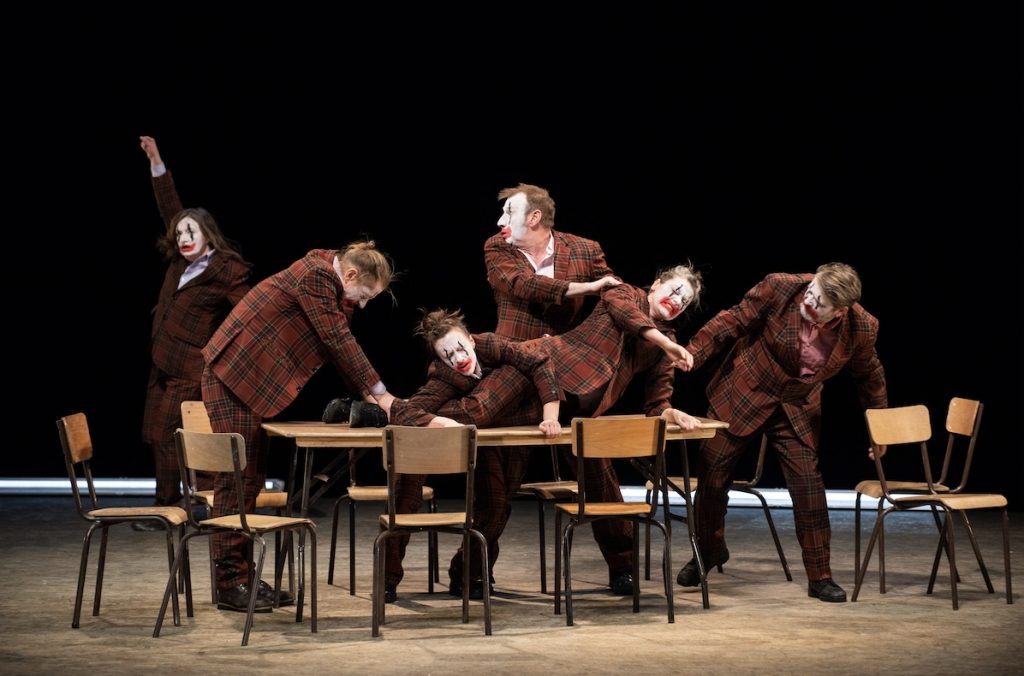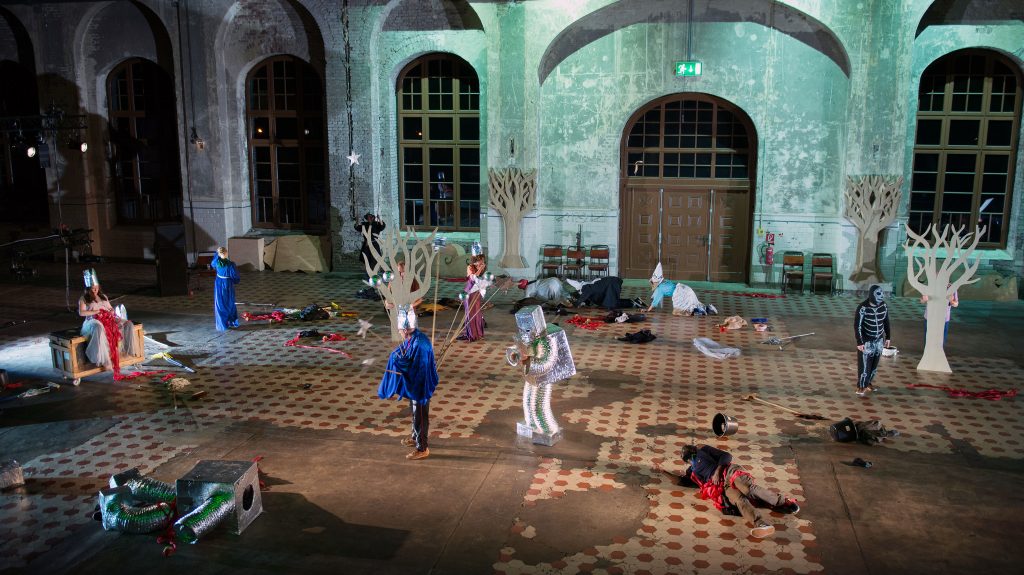Suggested Donation
This is an extract from an interview with Tim Etchells, Artistic Director of Forced Entertainment – read the full interview here.
Chaos is the order that you weren’t expecting! That’s what my 19 year old son tells me. I’m not sure that there is such a thing as chaos really. Any set of actions in time and space has a structure. It might not be easy to see at first glance. But it’s always there. Pattern and structure are always present.
Of course there are plenty of moments in our performances that look chaotic. Many times there will be material created in improvisation where a number of performers are working, making their own decisions in a kind of friction with each other: some striking off in this direction, others going in that direction. It’s a very complex interaction and when you look at it, it can appear chaotic – hard to map or contain. But in the theatre works we tend to control that kind of chaos very carefully. So chaos tends to be a recreation rather than anything really out of hand – we study the video recordings of the rehearsals and recreate the best of them, move for move, line for line. Someone once observed that the things that look most chaotic in our pieces are often the most completely and precisely choreographed. We’re very interested in that texture – that feeling that the eye doesn’t know where to rest, that the centre is missing, you see it, in shows like Real Magic, The Last Adventures or Bloody Mess or even the new one Out of Order, but we know we couldn’t improvise those every night in the theatre (it’s too unpredictable). So the only way that we can get anything to look out of control and multi-directional is via choreographing the most dynamic of the improvisations – scoring them in relation to the video and then working on notation and mechanical repetition. It’s acting – making it look real when it isn’t, making time flow, but controlling it somehow. Chaos on stage is, by its nature, perhaps slightly oxymoronic!


